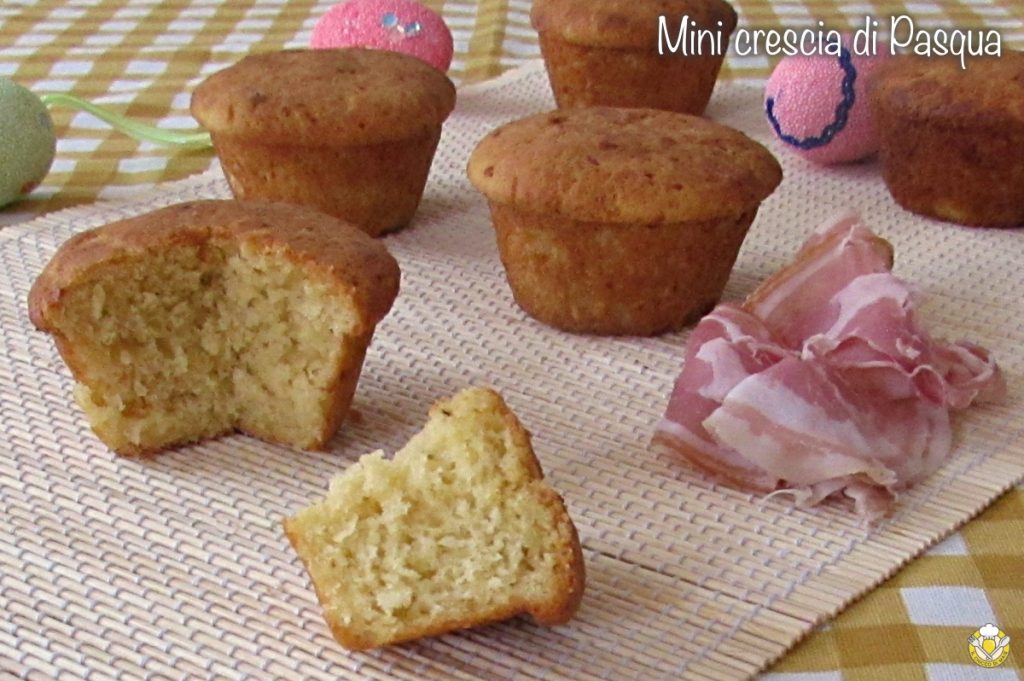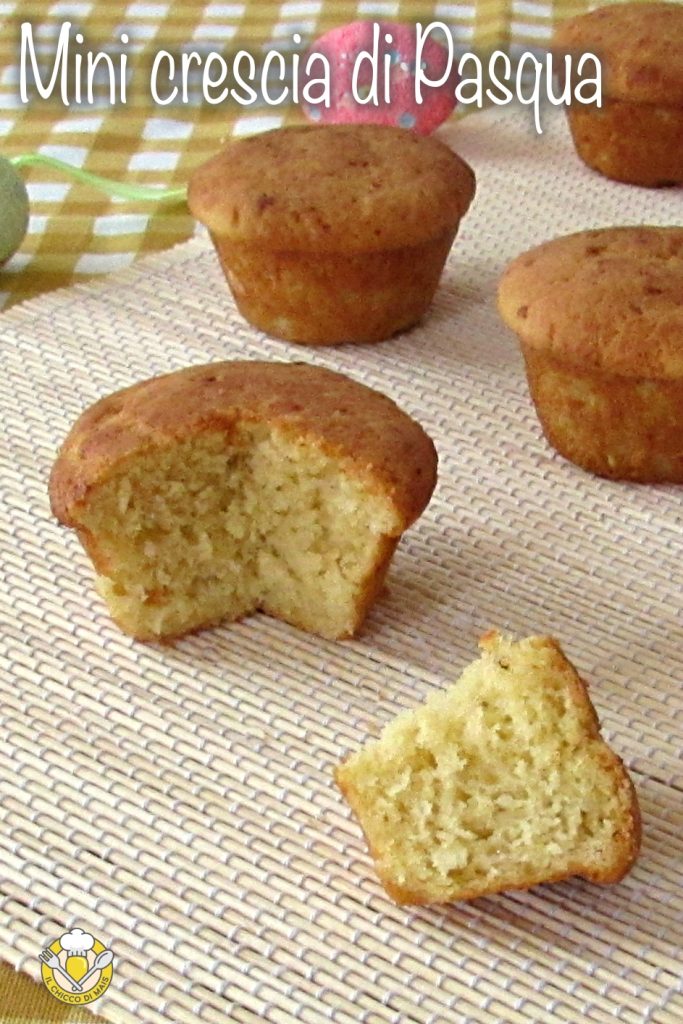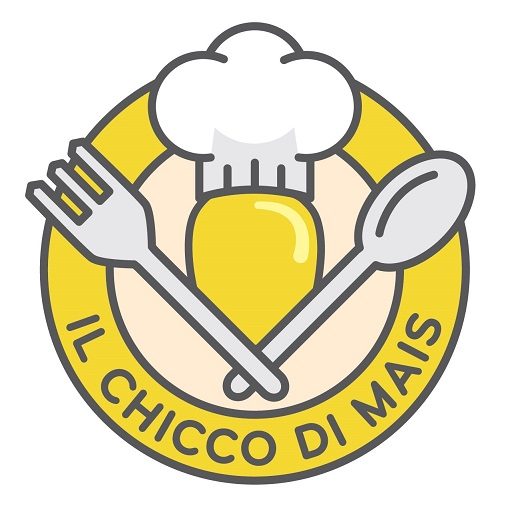Today I want to share with you a delightful and original idea to serve as a starter for Easter lunch: the Easter mini crescina. This dish, widely spread in central Italy (Umbria, upper Lazio) and known in Marche as “cheese pizza,” is a sort of savory cake enriched with Parmesan and Pecorino, traditionally enjoyed during the Easter breakfast along with cold cuts and cured meats. The recipe for the gluten-free Easter crescia can be found here in a medium-large version (about 700 g). However, today I offer you a more practical and original alternative: the cheese crescia in single-serving version, baked in muffin molds. These mini crescina are easier to prepare than the traditional version: the leavening is less delicate, the cooking time is shorter and they are perfect to give as gifts to friends as well. For this recipe, I prepared the dough by hand, but if you want to save time you can use a kneading machine or bread maker. Even the Easter mini crescina can be easily prepared gluten-free by using a special bread mix: below you will find all the instructions.
You might also be interested in:

- Difficulty: Easy
- Cost: Affordable
- Rest time: 2 Hours 30 Minutes
- Preparation time: 20 Minutes
- Portions: 18 pieces
- Cooking methods: Oven
- Cuisine: Italian Regional
- Region: Marche
- Seasonality: Easter
Ingredients for about 18 single-serving Easter crescina
If you are celiac, you can make the Easter mini crescina by replacing all-purpose flour with 480 g of mix B for bread Schar + 90 g of mix Farmo for bread.
- 5 eggs (large, or 6 medium)
- 2.5 cups all-purpose flour (for the gluten-free version, I used 480 g of Schar mix B plus 90 g of Farmo mix for bread)
- 1.5 cups Parmesan Reggiano PDO (grated)
- 1 cups Pecorino Romano (grated)
- 5 oz extra virgin olive oil
- 0.75 cups milk
- 1 tsp salt
- 1 packet dry yeast
- to taste black pepper (ground)
- 2 tsp butter
Tools
- 1 Bowl large
- 1 Small pot
- 1 Wooden spoon
- 1 Mixer optional
- 1 Muffin pan for 12
- 1 Muffin pan for 6
- 1 Brush
- Parchment paper
How to prepare the Easter mini crescina in muffin molds
To prepare the Easter mini crescina, start by slightly warming the milk in a small pot: it should not be hot, just a bit warmer than lukewarm. In a large bowl – or in the bowl of the mixer or the bread machine – mix flour, Parmesan, Pecorino, and dry yeast; add the milk (1) and start kneading (2-3).

Add the eggs one at a time, kneading well to incorporate them into the flour (4). Also add the salt, pepper, and oil (5). Regarding the amount of pepper, adjust it to your taste: many traditional recipes call for a lot of pepper, I use two or three grinds as I prefer a more delicate flavor. Continue working the dough with your hands or a wooden spoon for 5-6 minutes, until the mixture is quite smooth and homogeneous (6).

Melt the butter in a small pot over low heat. Line a 12-cup muffin pan and a 6-cup one with parchment paper, making sure the paper sticks out a bit (7). Fill each mold halfway with cheese crescia batter (8), brush the surface of the mini crescina with butter, and let them rise in the turned-off but slightly warm oven (95-104 °F) for two and a half hours. To maintain the warm temperature in the oven, you can keep the light on. When the dough has doubled in size (9), remove the mini crescina from the oven and preheat it to 350°F, then bake them in static mode for 35-40 minutes.

When the Easter crescina are golden brown on the surface (10), check their doneness by piercing them with a wooden skewer, which should come out perfectly dry. If not, extend the cooking for 5-10 minutes by activating the oven function that heats only from the bottom (or cover them with a foil sheet to prevent burning). Once cooked, unmold them and let them cool completely on a wire rack (11).

Serve the Easter mini crescina during the typical Easter breakfast, accompanied by hard-boiled eggs, cold cuts, cured meats, and chocolate eggs, or among the Easter starters.

Storage
Once completely cool, you can store the single-serving Easter crescina in a plastic bag for 3 or 4 days. You can also freeze them.
Tips and Variations
The proportion between Parmesan and Pecorino can vary according to taste: keep in mind that Pecorino is saltier, so if you plan to serve the mini crescina with cold cuts and cured meats, it’s best not to overdo it. Some recipes also include adding pieces of whole cheese to the dough. If you want to try, add them last before rising, and distribute them carefully throughout the dough.

